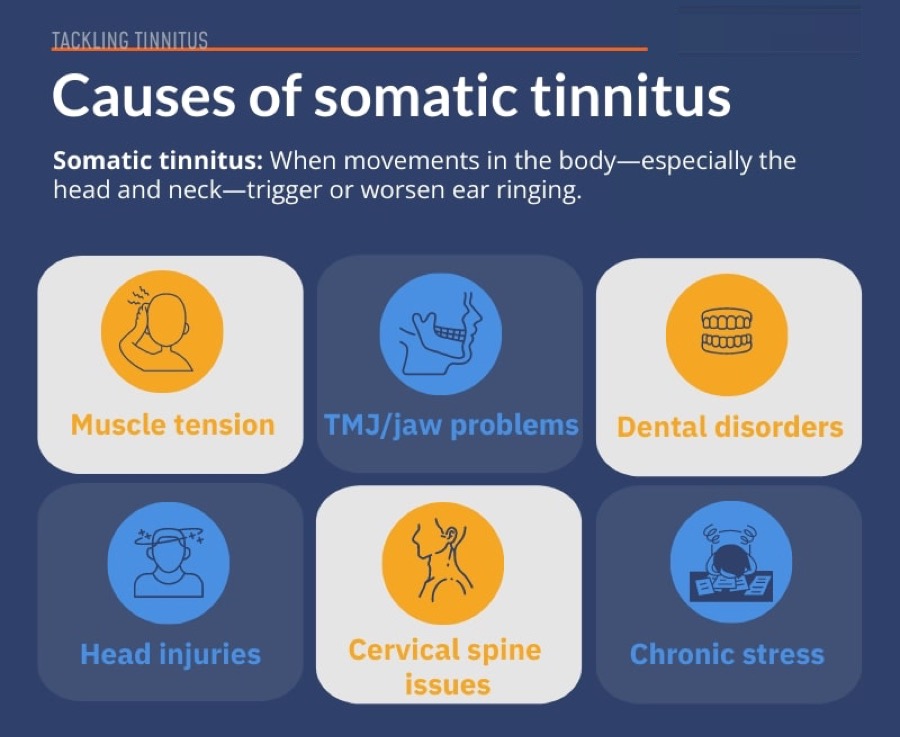Somatic tinnitus is associated with body movement and posture. It is caused by the auditory system's interaction with sensory impulses from muscles, joints, and nerves in the head and neck. The intensity of the sounds it creates often varies.
Diverse body and facial movements can influence the sounds you hear from somatic tinnitus. For example, patients often report the following actions have an effect: yawning, moving the jaw, tensing head/neck muscles, turning the head in specific directions, and applying pressure to areas of the face.
Conditions that can trigger or worsen somatic tinnitus include:
- Chronic muscle tension
- Head injuries
- Temporomandibular joint dysfunction (TMJ/D)
- Cervical spine issues
- Bruxism (excessive teeth grinding or jaw clenching)
- Chronic stress
If you have tinnitus and the sound changes in some way when you tense, manipulate, or apply pressure to the muscles in your face, head, jaw, or neck, then you likely have somatic tinnitus. —Glenn Schweitzer reporting for Healthy Hearing

Why it matters
There's general agreement among patients and audiologists that reducing muscle tension can help manage somatic tinnitus.
- Physical therapy, massage, and orthotic appliances are regularly used.
- Multiple approaches are crucial for success.
Reality check: While there is no cure for tinnitus, some have found relief from somatic tinnitus through stress management and accepting it.

